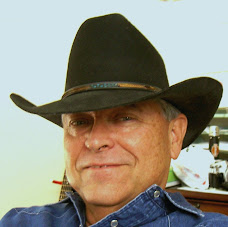
Thomas Sowell
From Wikipedia, the free encyclopedia
| Thomas Sowell | |
| Born | June 30, 1930 North Carolina |
|---|---|
| Nationality | United States |
| Fields | Economics, Education, Politics,History, Race relations, Child Development |
| Institutions | Hoover Institution |
| Alma mater | Howard University Harvard College Columbia University University of Chicago |
| Academic advisors | George Stigler |
| Influenced | Clarence Thomas |
Thomas Sowell (born June 30, 1930), is an American economist, social commentator, and author of dozens of books. He often writes from an economically laissez-faire perspective. He is currently a senior fellow of the Hoover Institution at Stanford University. In 1990, he won theFrancis Boyer Award, presented by the American Enterprise Institute. In 2002 he was awarded the National Humanities Medal for prolific scholarship melding history, economics, and political science.
Biography
Sowell was born in North Carolina, where, he recounted in his autobiography, A Personal Odyssey, his encounters with Caucasians were so limited he didn't believe that "yellow" was a hair color. He moved to Harlem, New York City with his mother's sister (whom he believed was his mother); his father had died before he was born. Sowell went to Stuyvesant High School, but dropped out at 17 because of financial difficulties and a deteriorating home environment.[1] He worked at various jobs to support himself, including in a machine shop and as a delivery man for Western Union. He applied to enter the Civil Service and was eventually accepted, moving to Washington DC. He was drafted in 1951, during the Korean War, and assigned to theUS Marine Corps. Due to prior experience in photography, he worked in a photography unit.
After his discharge, Sowell passed the GED examination and enrolled at Howard University. He transferred to Harvard University, where he graduated magna cum laude with a Bachelor of Arts degree in Economics in 1958. He received a Master of Arts in Economics from Columbia University in 1959, and a Doctor of Philosophy in Economics from the University of Chicago. Sowell initially chose Columbia University because he wanted to study under George Stigler. After arriving at Columbia and learning that Stigler had moved to Chicago, he followed him there.[2]
Sowell has taught Economics at Howard University, Cornell University, Brandeis University, and UCLA. Since 1980 he has been a Senior Fellow of the Hoover Institution at Stanford University, where he holds a fellowship named after Rose and Milton Friedman.[3]
Just thought you might want to know who wrote this piece.
The Blame Game
After virtually every disaster created by Beltway politicians you can
hear the sound of feet scurrying for cover in Washington, see fingers
pointing in every direction away from Washington, and watch all sorts of
scapegoats hauled up before Congressional committees to be denounced on
television for the disasters created by members of the committee who are
lecturing them.
The word repeated endlessly in these political charades is
"deregulation." The idea is that it was a lack of government supervision
which allowed "greed" in the private sector to lead the nation into
crises that only our Beltway saviors can solve.
What utter rubbish this all is can be found by checking the record of
how government regulators were precisely the ones who imposed lower
mortgage lending standards-- and it was members of Congress (of both
parties) and who pushed the regulators, the banks and the
mortgage-buying giants Fannie Mae and Freddie Mac into accepting risky
mortgages, in the name of "affordable housing" and more home ownership.
Presidents of both parties also jumped on the bandwagon.
Most people don't have time to spend digging into the Congressional
Record and other sources to find out the ugly truth being covered up by
the blizzard of lies coming out of Washington and echoed in much of the
media. But my research assistants do that for a living, and it is all
presented in a book of mine titled "The Housing Boom and Bust" that has
just been published.
When the housing boom was going along merrily, Congressman Barney Frank
was proud to be one of those who were pushing Fannie Mae and Freddie Mac
into more adventurous financial practices, in the name of "affordable
housing."
In 2003 he said: "I believe that we, as the Federal Government, have
probably done too little rather than too much to push them to meet the
goals of affordable housing and to set reasonable goals." He added: "I
want to roll the dice a little bit more in this situation towards
subsidized housing."
In other words, when things were looking good, he was happy to
acknowledge the role of the federal government in pushing the housing
market in a direction it would not have taken on its own. But, after the
risky mortgage-lending practices fostered by government intervention led
to massive defaults and foreclosures that caused financial institutions
to collapse or be bailed out, Congressman Frank changed his tune
completely.
By 2007, his line was now that "the subprime crisis demonstrates the
serious negative economic and social consequences that result from too
little regulation." By 2008, his line was that the financial crisis was
caused by "bad decisions that were made by people in the private sector."
When television financial reporter Maria Bartiromo reminded Congressman
Frank of his statements in earlier years, he simply denied making the
statements she quoted and blamed "right-wing Republicans who took the
position that regulation was always bad."
Regulation is of course not always bad, and it would be hard to find
anyone of any party who says that it is. Moreover, Congressman Frank had
some Republican collaborators in pushing regulators to push banks into
risky mortgage lending.
As for the market, financial market specialist Mark Zandi put it very
plainly: "Lending money to American homebuyers had been one of the least
risky and most profitable businesses a bank could engage in for nearly a
century."
What changed that was not the market but politicians like Barney Frank
and his Senate counterpart Christopher Dodd, pushing the "affordable
housing" crusade through government intervention, in disregard of the
risks that they were repeatedly warned about by people inside and
outside of government.
Although this is the biggest housing disaster the government has ever
produced, it is by no means the first. Republicans intervened in the
housing markets to promote more home ownership in the 1920s, Democrats
in the 1930s and both parties after World War II. All of these
interventions led to massive foreclosures.
Don't politicians ever learn? Why should they? What they have learned
all too well is how easy it is to get credit for promoting home
ownership and how easy it is to escape blame for the later foreclosures
and other economic disasters that follow.
When they call the roll in the Senate, the Senators do not know whether to answer 'Present' or 'Not guilty.' - Theodore Roosevelt



